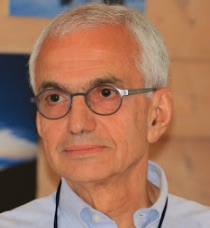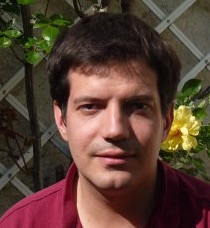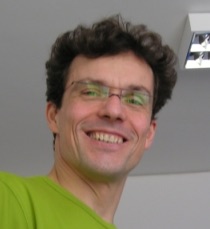Invited talks
Phokion G. Kolaitis
Coping with Inconsistent Databases: Semantics, Algorithms, and Complexity
(slides of the talk)
Abstract: Managing inconsistency in databases is a long-standing challenge. The framework of database repairs provides a principled approach towards coping with inconsistency in databases. Intuitively, a repair of an inconsistent database is a consistent database that differs from the given inconsistent database in a minimal way. Repair checking and consistent query answering are two fundamental algorithmic problems arising in this context. The first of these two problems asks whether, given two databases, one is a repair of the other. The second asks whether, a query is true on every repair of a given inconsistent database. The aim of this talk is to give an overview of a body of results in this area with emphasis on the computational complexity of repair checking and consistent query answering, including the quest for dichotomy theorems. In addition to presenting open problems, the last part of the talk will include a discussion of the potential use of solvers in developing practical systems for consistent query answering.
 About the author: Phokion G. Kolaitis is a Distinguished Professor of Computer Science at the University of California Santa Cruz and a Principal Research Staff Member at the IBM Almaden Research Center. His research interests include principles of database systems, logic in computer science, and computational complexity. Kolaitis is a Fellow of the American Association for the Advancement of Science and a Fellow of the Association for Computing Machinery. He is also a co-winner of both the 2008 and the 2014 ACM PODS Alberto O. Mendelzon Test-of-Time Award, and a co-winner of the 2013 International Conference on Database Theory Test-of-Time Award.
About the author: Phokion G. Kolaitis is a Distinguished Professor of Computer Science at the University of California Santa Cruz and a Principal Research Staff Member at the IBM Almaden Research Center. His research interests include principles of database systems, logic in computer science, and computational complexity. Kolaitis is a Fellow of the American Association for the Advancement of Science and a Fellow of the Association for Computing Machinery. He is also a co-winner of both the 2008 and the 2014 ACM PODS Alberto O. Mendelzon Test-of-Time Award, and a co-winner of the 2013 International Conference on Database Theory Test-of-Time Award.
David Monniaux
Satisfiability Testing, a Disruptive Technology in Program Verification
Abstract: In the 2000s, progress in satisfiability testing shook automated and assisted program verification. The advent of efficient satisfiability modulo theory (SMT) solvers allowed new approaches: efficient testing and symbolic execution, new methods for generating inductive invariants, and more automated assisted proof. This talk will focus on those new approaches and present some challenges for SAT in program verification.
 About the author: David Monniaux is senior researcher (*directeur de recherche*) at the French national scientific research center (CNRS). He works at VERIMAG, a computer science laboratory jointly operated by CNRS and the University of Grenoble. The practical focus of his research is how to prove software correct. This is connected to computability theory, since software correctness, in general, is an undecidable problem, to complexity theory, since many verification problems have high complexity, to mathematical logic, and to fields as diverse as game theory, algebra, and convex optimization.
He has been interested, in particular, in proving strong properties of critical software used in civil aviation (e.g. with respect to numerical overflows and floating-point computations). I've also worked on cryptographic protocols and probabilistic systems.
About the author: David Monniaux is senior researcher (*directeur de recherche*) at the French national scientific research center (CNRS). He works at VERIMAG, a computer science laboratory jointly operated by CNRS and the University of Grenoble. The practical focus of his research is how to prove software correct. This is connected to computability theory, since software correctness, in general, is an undecidable problem, to complexity theory, since many verification problems have high complexity, to mathematical logic, and to fields as diverse as game theory, algebra, and convex optimization.
He has been interested, in particular, in proving strong properties of critical software used in civil aviation (e.g. with respect to numerical overflows and floating-point computations). I've also worked on cryptographic protocols and probabilistic systems.
Tosten Schaub (EurAI sponsored)
From SAT to ASP and back!?
(slides of the talk)
Abstract: Answer Set Programming (ASP) provides an approach to declarative problem solving that combines a rich yet simple modeling language with effective Boolean constraint solving capacities. This makes ASP a model, ground, and solve paradigm, in which a problem is expressed as a set of first-order rules, which are subsequently turned into a propositional format by systematically replacing all variables, before finally the models of the resulting propositional rules are computed. ASP is particularly suited for modeling problems in the area of Knowledge Representation and Reasoning involving incomplete, inconsistent, and changing information due to its nonmonotonic semantic foundations. As such, it offers, in addition to satisfiability testing, various reasoning modes, including different forms of model enumeration, intersection or unioning, as well as multi-objective optimization. From a formal perspective, ASP allows for solving all search problems in NP (and NPNP) in a uniform way, that is, by separat- ing problem encodings and instances. Hence, ASP is well-suited for solving hard combinatorial search (and optimization) problems. Interesting applications of ASP include decision support systems for NASA shuttle controllers, industrial team-building, music composition, natural language processing, package configuration, phylogeneticics, robotics, systems biology, timetabling, and many more. The versatility of ASP is nicely reflected by the ASP solver clasp, winning first places at various solver competitions, including ASP, MISC, PB, and SAT. In fact, clasp is at the heart of the open source platform potassco.sourceforge.net. Potassco stands for the “Potsdam Answer Set Solving Collection” and has seen more than 145000 downloads world-wide since its inception at the end of 2008. The talk will start with a gentle introduction to ASP, while focusing on the commonalities and differences to SAT. It will discuss the different semantic foundations and describe the impact of a modelling language along with off- the-shelf grounding systems. Finally, it will highlight some resulting techniques, like meta-programming, preference handling, heuristic constructs, and theory reasoning.
 About the author: Torsten Schaub received his diploma and dissertation in informatics in 1990 and 1992, respectively, from the Technical University of Darmstadt, Germany, and his habilitation in informatics in 1995 from the University of Rennes I, France. From 1990 to 1993 he was a research assistant at the Technical University at Darmstadt. From 1993 to 1995, he was a research associate at IRISA/INRIA at Rennes. In 1995 he became University Professor at the University of Angers. Since 1997, he is University Professor for knowledge processing and information systems at the University of Potsdam. In 1999, he became Adjunct Professor at the School of Computing Science at Simon Fraser University, Canada; and since 2006 he is also an Adjunct Professor in the Institute for Integrated and Intelligent Systems at Griffith University, Australia. Since 2014, Torsten Schaub holds an Inria International Chair at Inria Rennes - Bretagne Atlantique. Torsten Schaub has become a fellow of ECCAI in 2012. In 2014 he was elected President of the Association of Logic Programming. He served as program (co-)chair of LPNMR'09, ICLP'10, and ECAI'14. The research interests of Torsten Schaub range from the theoretic foundations to the practical implementation of reasoning from incomplete, inconsistent, and evolving information. His current research focus lies on Answer set programming and materializes at potassco.sourceforge.net, the home of the open source project Potassco bundling software for Answer Set Programming developed at the University of Potsdam.
About the author: Torsten Schaub received his diploma and dissertation in informatics in 1990 and 1992, respectively, from the Technical University of Darmstadt, Germany, and his habilitation in informatics in 1995 from the University of Rennes I, France. From 1990 to 1993 he was a research assistant at the Technical University at Darmstadt. From 1993 to 1995, he was a research associate at IRISA/INRIA at Rennes. In 1995 he became University Professor at the University of Angers. Since 1997, he is University Professor for knowledge processing and information systems at the University of Potsdam. In 1999, he became Adjunct Professor at the School of Computing Science at Simon Fraser University, Canada; and since 2006 he is also an Adjunct Professor in the Institute for Integrated and Intelligent Systems at Griffith University, Australia. Since 2014, Torsten Schaub holds an Inria International Chair at Inria Rennes - Bretagne Atlantique. Torsten Schaub has become a fellow of ECCAI in 2012. In 2014 he was elected President of the Association of Logic Programming. He served as program (co-)chair of LPNMR'09, ICLP'10, and ECAI'14. The research interests of Torsten Schaub range from the theoretic foundations to the practical implementation of reasoning from incomplete, inconsistent, and evolving information. His current research focus lies on Answer set programming and materializes at potassco.sourceforge.net, the home of the open source project Potassco bundling software for Answer Set Programming developed at the University of Potsdam.